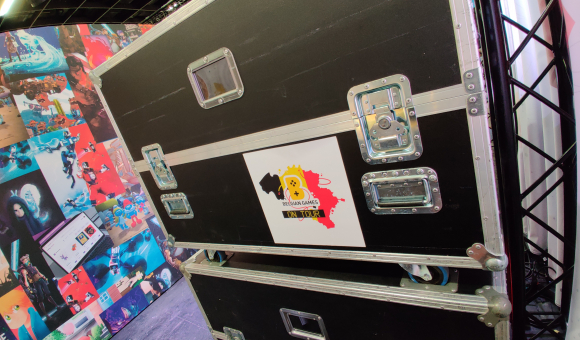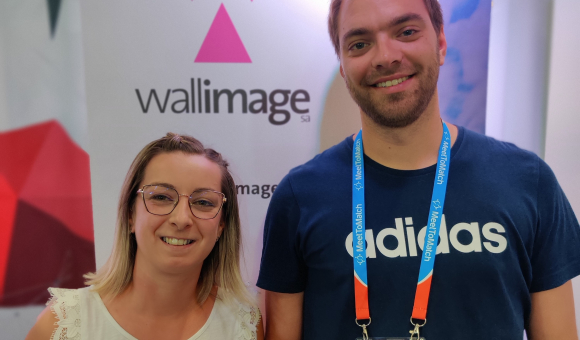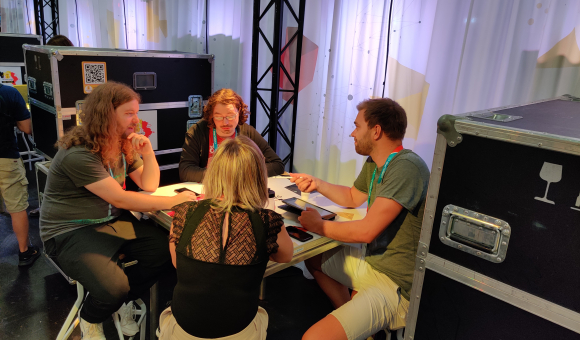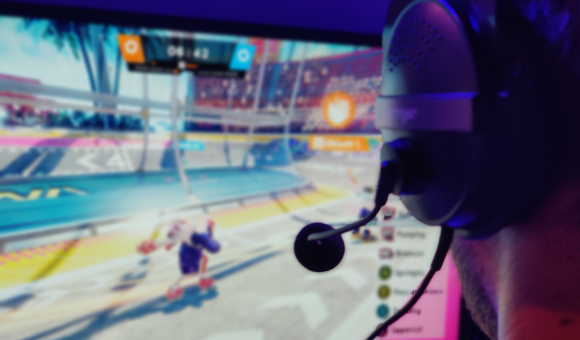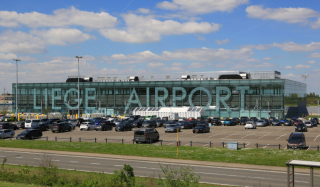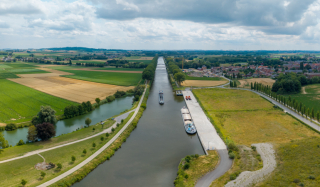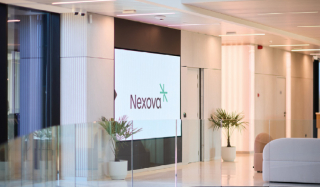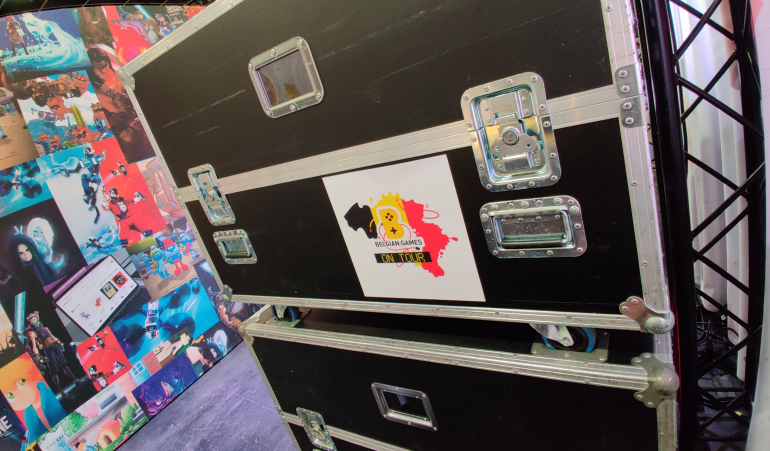
While the gaming industry has become the largest cultural industry in terms of turnover, access to foreign funding remains a challenge for many studios. How can you expand and offer products to the general public when funds are limited? Wallonia has been working to boost this sector for many years by diversifying sources of aid. How? Wallimage, which was present at Gamescom, has feedback on options for support for companies in Wallonia. Explanations.
Welcome to Gamescom, the leading European event for video games. Gaming today is simple: it is the biggest cultural sector in terms of turnover, far exceeding other sectors such as cinema and music. Global turnover from the gaming industry rose from $152.1 billion in 2019 to $180.3 in 2021, an annual increase of nearly 20%, showing significant resilience in the face of the Covid-19 crisis (major consumption during lockdown).
In Belgium, the industrial development of gaming is also on the rise. In 2020, this sector generated annual revenue of €270 million and the number of game developers has increased from 65 in 2014 to 114 in 2020.
The modest size of the gaming sector in Belgium can be explained, in part, by the more recent structuring of the sector. However, there is considerable economic potential for video games in Belgium and Wallonia because the region has an ecosystem of dynamic game development studios with many heavyweight names (Fishing Cactus, Appeal, Wild Bishop, Abrakam etc.) that are driving the sector upwards and a large talent pool whose quality is recognised internationally.
What options for support are available for project leaders in Belgium and internationally? How can entrepreneurs get help to develop and market their products? We talked about this at the Belgian Pavillon at Gamescom with Sophie Augurelle and Vincent Wattiez, project managers at Wallimage. State of play and courses of action.
Wallonia Export : Hello Sophie, hello Vincent. Could you start by telling us what Wallimage is ?
Sophie & Vincent: We are a public investment fund intended to boost the Walloon economy around the film and gaming industries and professions. By supporting film or gaming projects, we strive to create jobs and companies; in short, to bolster an economy around an industry. That said, we do not limit ourselves to simply supporting projects. We also intervene directly through loans or capital for companies, including companies created by foreign partners. Today, we support a dozen video game companies.
Wallonia Export: And how do you support the gaming industry?
Sophie & Vincent: Our ‘Enterprise’ department supports companies with loans or equity investments (e.g. Fishing Cactus etc.). Our ‘Gaming’ department funds video game projects. We can intervene at several stages in the development of a game. Firstly, during the ‘pre-production’ phase (maximum of €30,000, or €100,000 if creating a playable prototype). Once this stage has been validated, we intervene in the marketing phase, up to €500,000. If the game reaches the marketing phase, we have access to revenue, or, at least, the repayment of the loan. If the project fails, the bidder does not need to pay back (editor’s note: under certain defined conditions).
Wallonia Export: And how can an individual or a company get support from Wallimage in real terms?
Sophie & Vincent: The first thing to do is contact us. Then we organise a meeting in which the project is presented to us: the concept, how it works, the team structure, projects that are currently underway or that have been completed, financial needs, etc.
We assess the maturity of the project, in order to ascertain whether it is eligible for our call for tenders or any direct support for the company. If this is OK, the project will go before a jury during the call for tenders so that a final decision can be made.
Wallonia Export: What are Wallonia’s expectations when it comes to supporting a video game project?
Sophie & Vincent: There must be local expenditure and this structuring effect at the gaming level for the Walloon region, that is, depending on the project, a studio is founded in Wallonia, or young talents are hired to move there and develop this industry.
Wallonia Export: Are there other support organisations?
Sophie & Vincent: There are other, more general forms of assistance for start-ups, launch support, support, etc. in Belgium and Wallonia… We urge project leaders to join professional networks such as Walga, or the Belgian Games Association to get more involved with the ‘made in Belgium’ gaming industry. If the project is mature enough, they can also request assistance from Wallonia Export for internationalisation, such asparticipation in trade fairs or shows like Gamescom where we are now. We are also expecting a ‘tax shelter’ (see below) for video games in 2023, which should also support the growth of the sector and its dynamics in Belgium and internationally.
Wallonia Export: What advice would you give to those looking for funding from Belgium or Wallonia for their projects?
Sophie & Vincent: Prepare your pitch sessions well and, if possible, bring someone who knows the project well as a whole. Presenting a project in three minutes is no easy task. Remember to focus on your business model, budget, marketing, etc., that is, everything that will help your video game project to succeed, not just artistically, but also commercially. In order to flourish in the video game industry, you must think business first and foremost, not just artistry or creativity.
Do not hesitate to come and see us to present your ideas before submitting a bid to a call for tenders. We are here to advise project leaders and to help them ask the right questions as soon as possible.
The Belgian tax shelter for video games in brief
The tax shelter is a tax-exemption system for Belgian companies (or foreign investors with a tax base in Belgium) that invests a portion of their taxable profit in the audiovisual and/or performing arts sectors. This tax-exemption system should soon be open to the gaming industry.
In order to benefit from the tax shelter, each video game project should have a cultural dimension, whether through its educational nature or by highlighting, for example, local expertise or local heritage. The Cinema and Audiovisual Centre in the French Community of Belgium, which already approves audiovisual and performing arts works that are eligible to benefit from the tax shelter, conducts a culture test, requiring, for example, that 50% of salaries must be paid, or a significant portion of production must be carried out, within Belgium. Obviously, producing video games must be the main activity of the company and represent at least 50% of its revenue.
The implementation of the tax shelter for the gaming industry is scheduled for 2023.
Interview managed by Jonathan Avau (Wallonia Export)
